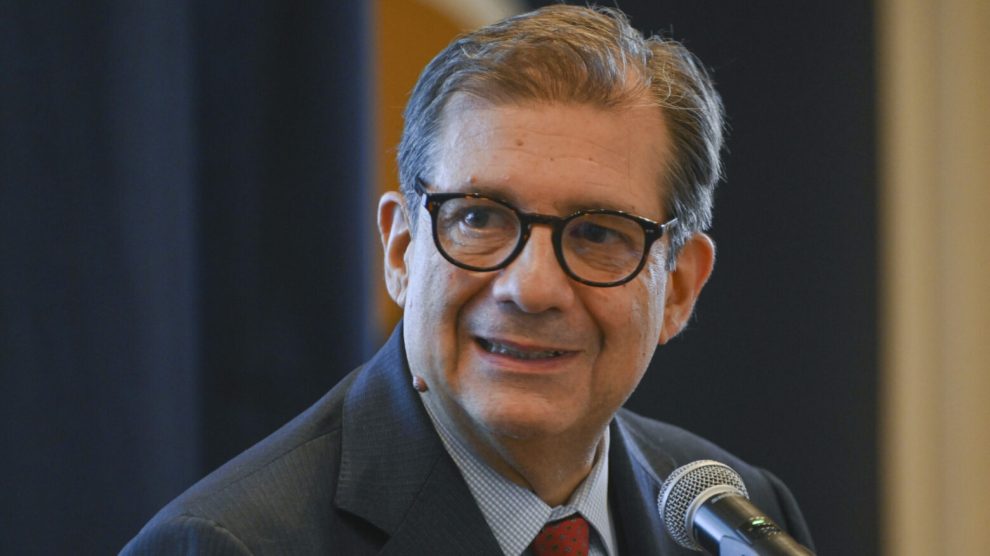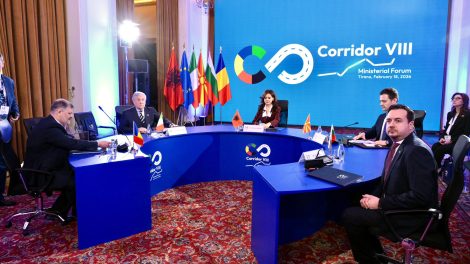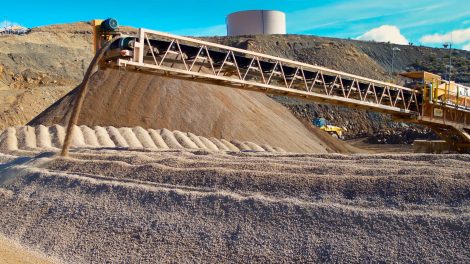What’s new. Brussels hosted the first meeting of the EU signatories to the IMEC agreement: Italy, France, and Germany.
- The talks included Luigi Di Maio (EU Special Representative for the Gulf Region), Koen Doens (DG INTPA), and the Vice Director DG MENA (headed by Stefano Sannino).
- The European Union is assuming both political and technical leadership, with the goal of consolidating a shared strategic agenda.
- “We are now on a different level, a more operational one: we need to deploy tools, technical expertise, and vision,” said the Italian Special Envoy for IMEC.
Italy at work. Speaking to Decode39, Ambassador Talò outlines Italy’s engagement across three strategic levels:
- Domestic – promoting inter-ministerial coordination and engaging the private sector
- “Large companies can identify areas of interest and margins for action. We want them involved to give strength to the project and make it walk on the legs of the real economy.”
- European – advancing the Team Europe model.
- “We must act as a team. We share most objectives and must define which results we want to achieve, and with which tools.”
- International – engaging with other signatories, from the Gulf to India and the United States.
- “The India-Israel-Italy axis is seen as central in Washington, and Rome is firmly on the U.S. strategic radar when it comes to IMEC.”
In Talò’s words. “This is a new moment. A significant transition: no longer just conferences and geopolitical visions — we are entering a phase of operational concreteness.”
- According to Talò, “technical matters — especially infrastructure — are just as important as political ones. But their complexity is decisive and demands competence.”
- On differing European priorities: “We are aware of partially diverging interests among Europeans, especially between the ports of Trieste and Marseille. But we mostly share many common goals.”
In the box. For Talò, it is essential that IMEC is fully integrated into the Global Gateway framework — alongside major initiatives like the Mattei Plan and the Lobito Corridor — in order to benefit from the tools and technical capabilities being developed in Brussels.
Looking forward. Following the announcement of IMEC at the September 2023 G20 and the abrupt freeze triggered by the Hamas attacks on October 7, the project stalled throughout 2024 — progressing only along the India–Gulf axis.
- Now, in 2025, momentum is returning, partly due to renewed U.S. interest, reflected in Donald Trump’s meetings with Narendra Modi and Giorgia Meloni.
- “There are also other potential key partners, like Egypt and Oman, which are crucial to avoid maritime chokepoints and ensure corridor stability,” says Talò, who also highlights the roles of Israel, Jordan, Cyprus, and Greece.
What we’re watching. Italy is ready to contribute significantly to the feasibility study, with proposals aligned to its national strategic interests.
- The EU may strengthen coordination to speak with a unified voice to other partners (India, U.S., Gulf countries).
- Trieste — as stressed by Foreign Minister Antonio Tajani — is well-positioned to serve as an European terminal of the corridor.





